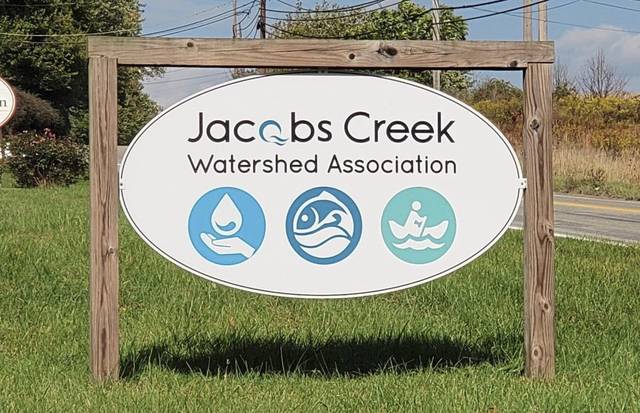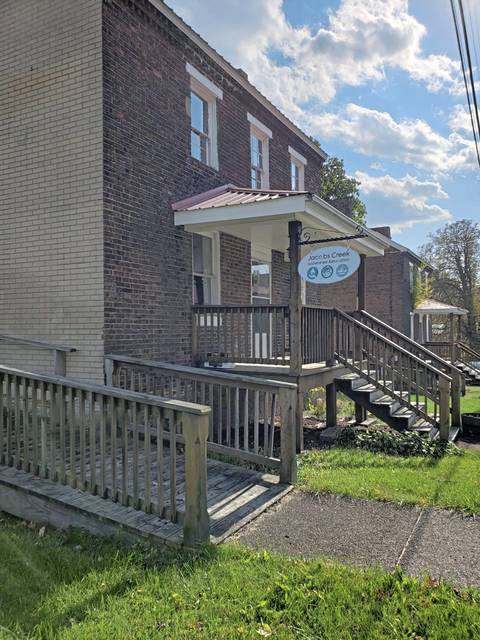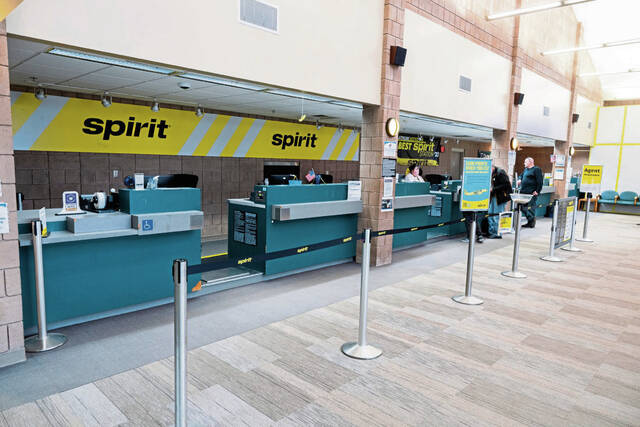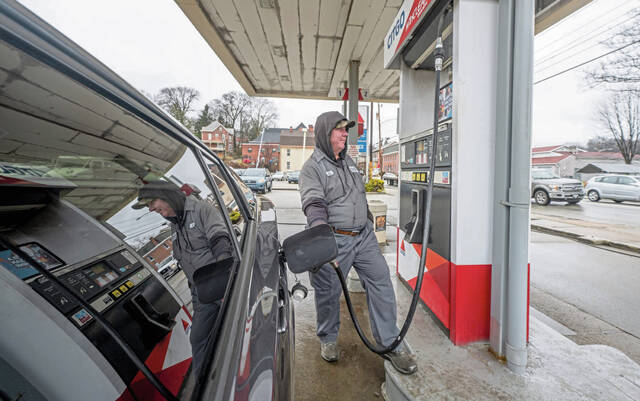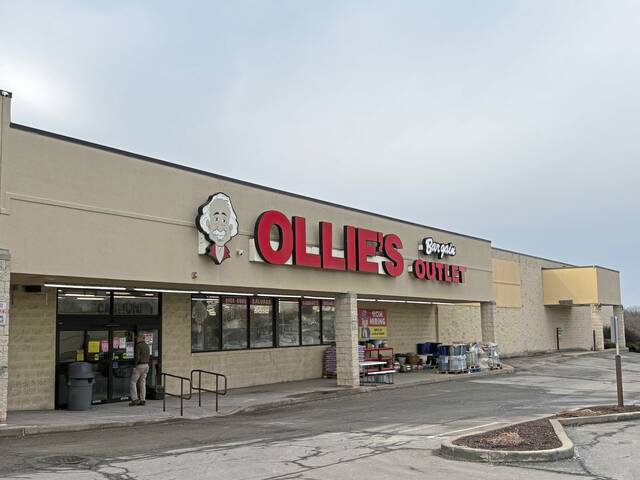Jacobs Creek Watershed Association is partnering with West Overton Village, taking up residence at one of the historic site’s restored buildings while working to improve a stream on the property.
The watershed group in August moved its headquarters from an office in the Scottdale Borough building to a former worker’s home dating from the 1860s at the village along Route 819 in East Huntingdon.
Executive Director Denise Wilkins said it made sense for the association to enter into a three-year lease at West Overton, where the group has gained increased visibility while entering into collaborative efforts.
“We were kind of hidden in the back of the borough building,” she said.
The association this week was awarded an $82,468 grant from the state Department of Environmental Protection to design a system for treating abandoned mine drainage affecting Felgar’s Run, a stream that crosses the roughly 30-acre village and is a tributary of Jacobs Creek.
Wilkins said the association will begin by sampling and assessing water in the stream. The proposed treatment system, she said, likely will involve creation of a pond, behind a barn in the village, where acid levels will be reduced before releasing the water into the stream.
“It’s a two-fold area,” Wilkins said. “We’re also putting in a riparian buffer at the same location. The clearing and the digging have begun. In the process, we’ll put in native grasses and plants along the stream.”
That work is being supported by a $172,000 grant from the state Department of Conservation and Natural Resources, which promotes such buffers as a natural means to filter sediment and pollutants and help keep them from reaching the water.
The watershed association is undertaking a similar buffer project along a stream at nearby Yinzer Valley Farms, along Mulberry Hill Road.
Once the stream treatments are in place and pandemic restrictions have been lifted, Wilkins would like to invite school groups to the site for educational visits.
“We’re so happy to have them here,” West Overton Village CEO Jessica Kadie-Barclay said of the watershed group. “We’re trying to have a more holistic approach to how we manage our property and how we use that to tell a story. We view our landscape as the largest artifact that we have.”
Childhood home of industrialist Henry Clay Frick, the West Overton community over the years was the site of farming, coal mining and coke production.
Mining began in the 1860s and expanded in 1874, along with construction of coke ovens. According to Aaron Hollis, West Overton’s director of education, there were 110 coke ovens operating at the site in 1882, but they were no longer recorded in 1904 tax documents for the property. Coal mining continued into the 1920s.
West Overton also was known for distilling whiskey, which initially ended with Prohibition but has begun once again.
Because of health concerns during the coronavirus pandemic, the distillery is not open for tastings or sales, and special events such as the Whiskey Smash celebration are on hold. But Kadie-Barclay said production of rye whiskey at the distillery has been “going like gangbusters. We’ve taken the opportunity to lay down some barrels. When we do open back up fully, we’ll be prepared to knock people’s socks off.”


